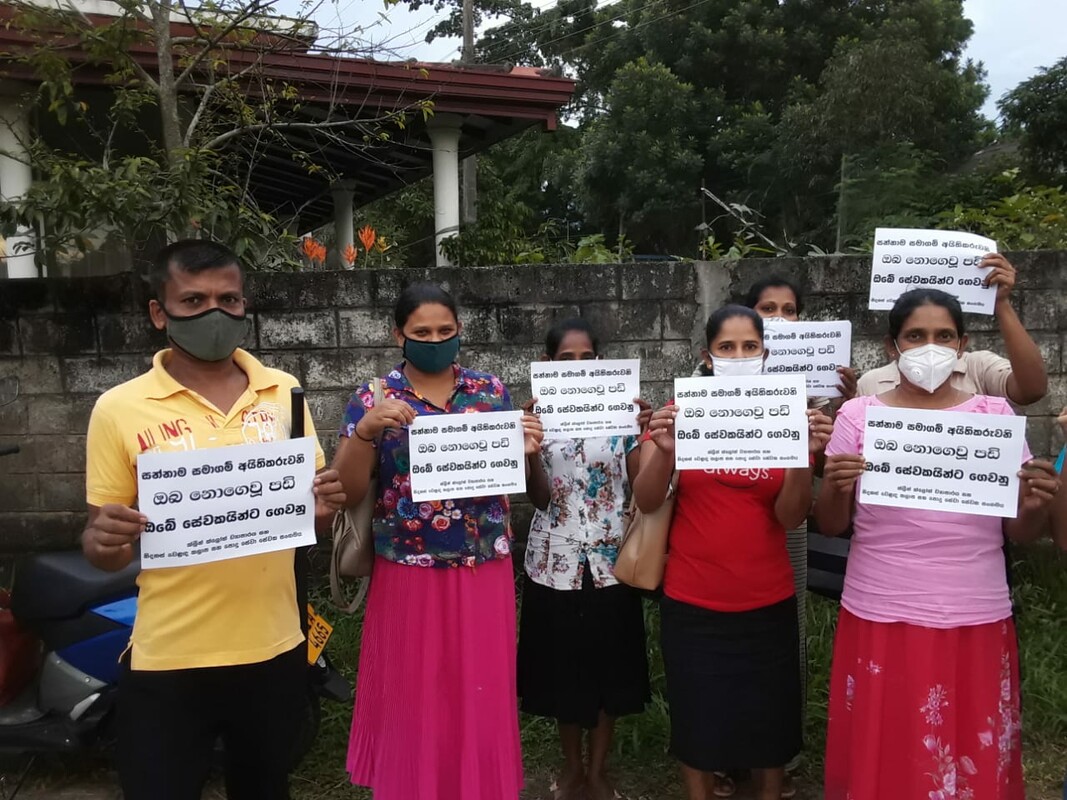
Emergency relief needed for Sri Lanka's economic crisis.
Trade unions and worker rights organizations, including the Clean Clothes Campaign, Labour behind the Label, Maquila Solidarity Network, War on Want and Workers United have written a letter expressing their solidarity with the people of Sri Lanka.
They're calling upon national governments, international financial institutions, private sector enterprises (including international brands and retailers sourcing garments from Sri Lanka), and other stakeholders to support a program of emergency relief, mid and long-term financial support, and a democratic political solution to the crisis.
Sri Lanka’s apparel and textile manufacturing industry is the most significant and dynamic contributor to Sri Lanka’s economy. The apparel industry employs about 350,000 workers. Sri Lanka’s 1,000 plus factories supply nearly half of all merchandise exports and contribute 6% of the island nation’s gross domestic product. Sri Lanka is among the top apparel-producing countries in the world relative to its population.
The rising cost of shipping and logistics has been a growth impediment factor in the apparel industry but the current crisis seems to be hurting the business the most. A loss of buyers’ confidence in the industry because of the “political instability” is a real risk. Small-to-medium scale apparel makers are being badly effected by the countries energy crisis and fuel shortages, affecting their ability to transport goods, provide staff transport, or generate power. Anti-Government protests across the country have also impacted workers ability to reach their factories because of lack of transportation.
In a statement released late last month, the Joint Apparel Association Forum (JAAF) warned of “serious negative consequences” if policymakers continue to drag their feet on the sweeping reforms required to put the island nation back on track. The crisis has brought about widespread food, fuel and medicine shortages, sky-rocketing inflation and mass protests calling for the president’s resignation.
Export earnings in Sri Lanka’s clothing sector for the June to August period are set to fall by 20-25%. Sri Lanka’s Joint Apparel Association Forum (JAAF) secretary-general Yohan Lawrence told Just Style in terms of the value, this is “nearly a loss of $125m per month for the next three months.”
In most of the apparel factories, the management is now forced to spend 400 per cent more on fuel and generator costs, compared to the same period last year, which has pushed up overheads. With fewer operating hours, workers are likely to get paid one-third less this month as they don’t work over-time.
Any strategy to stabilise the economy, JAAF secretary-general Yohan Lawrence says, must prioritise support to apparel manufacturers large and small.
Read the solidarity letter from Trade unions and worker rights organizations, including the Clean Clothes Campaign, Labour behind the Label, Maquila Solidarity Network, War on Want and Workers United here.